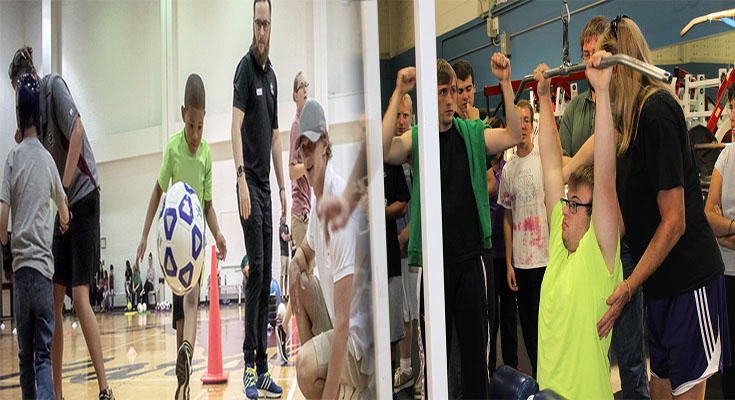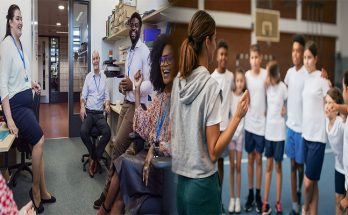Adaptive physical education (APE) programs play a vital role in providing specialized instruction and support for students with disabilities to participate in physical activity and sports. As the need for inclusive education continues to gain recognition, the role of adaptive physical education teachers has become increasingly essential in ensuring that all students have access to quality physical education programs. Let’s explore the unique opportunities that adaptive physical education teachers offer for special needs students and the impact of their work on promoting health, inclusion, and overall well-being.
Tailored Instruction and Support
One of the key opportunities that adaptive physical education teachers provide is tailored instruction and support for students with disabilities. By understanding each student’s specific needs, abilities, and challenges, adaptive physical education teachers can develop individualized education plans that accommodate diverse learning styles and goals. They adapt activities, exercises, and equipment to meet the unique needs of each student, ensuring that all students can participate in physical education programs safely and effectively.
Inclusive and Accessible Programs
Adaptive physical education teachers play a critical role in creating inclusive and accessible physical education programs that welcome students of all abilities. By designing inclusive activities, modifying equipment, and providing alternative assessment methods, they ensure that students with disabilities can actively engage in physical education classes alongside their peers. This promotes a culture of inclusivity, acceptance, and respect for diversity within the school community, fostering a sense of belonging and empowerment for special needs students.
Collaboration and Advocacy
Adaptive physical education teachers collaborate with other educators, specialists, families, and community members to advocate for the needs of special needs students and promote inclusive practices. By engaging in interdisciplinary teamwork, sharing expertise, and advocating for policy changes that support inclusive physical education, they work towards creating a supportive and equitable learning environment for all students. Collaboration and advocacy efforts are essential for raising awareness, building partnerships, and fostering a culture of inclusivity within the broader educational system.
Professional Development and Training
Opportunities for adaptive physical education teachers to engage in professional development and training are crucial for expanding their knowledge, skills, and expertise in providing quality instruction for special needs students. Continuing education programs, workshops, and conferences offer valuable resources and networking opportunities for adaptive physical education teachers to stay informed about best practices, evidence-based strategies, and emerging trends in the field. Professional development opportunities help equip adaptive physical education teachers with the tools and resources they need to support the diverse needs of special needs students effectively.
Impact on Health and Well-Being
The work of adaptive physical education teachers has a profound impact on the health, well-being, and overall development of special needs students. By promoting physical activity, motor skills development, social interaction, and emotional resilience, adaptive physical education programs contribute to students’ physical, cognitive, and social-emotional growth. Regular participation in adapted physical education classes can improve students’ fitness levels, increase their self-esteem, and enhance their quality of life. Through tailored instruction, support, and encouragement, adaptive physical education teachers empower special needs students to achieve their full potential and lead healthy, active lifestyles.
Adaptive physical education teachers play a vital role in providing specialized instruction and support for special needs students to participate in physical activity and sports. By offering tailored instruction, creating inclusive programs, collaborating with stakeholders, engaging in professional development, and promoting health and well-being, adaptive physical education teachers contribute to the holistic development of students with disabilities. The opportunities that adaptive physical education teachers offer for special needs students not only promote inclusion and equality but also empower students to lead active, healthy, and fulfilling lives. Through their dedication, expertise, and advocacy, adaptive physical education teachers make a positive impact on the lives of special needs students and contribute to building a more inclusive and equitable educational system.





